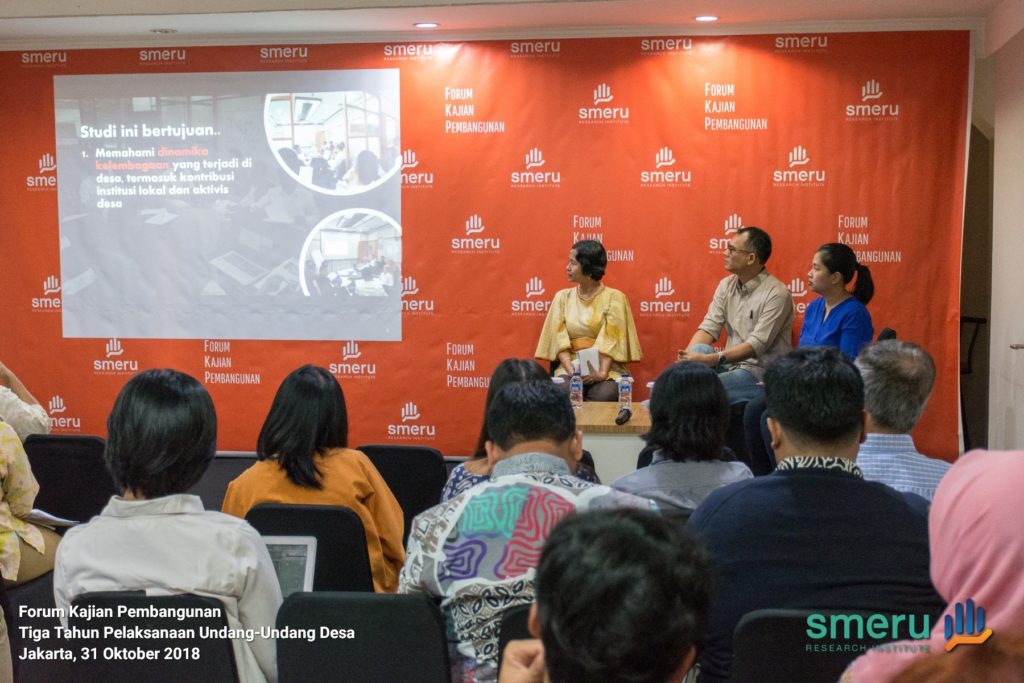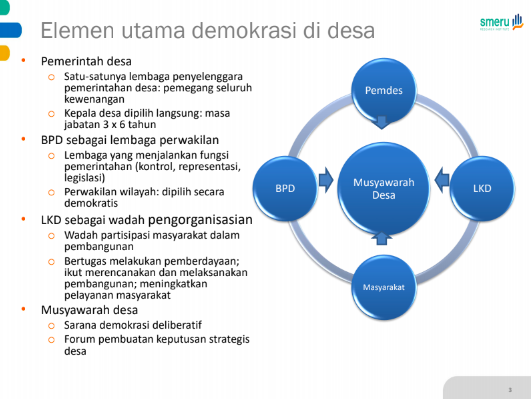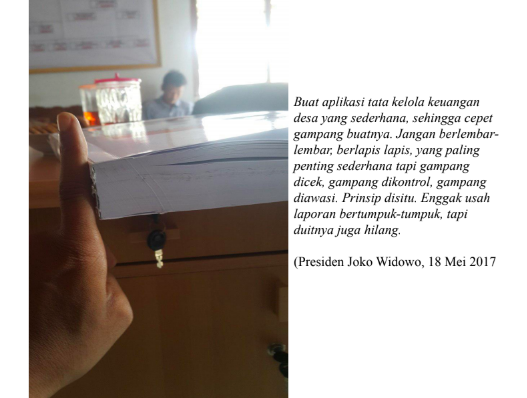In 2014 the Indonesia Village Law (Law No. 6) recognising village authority and rights was introduced. Since the implementation of the Village Law, villages are perceived as self-governing communities and local self-governments. As a result villages are given more authority and facilities in the form of funding and training from supra-village governments. Three years after its first implementation in 2015, The SMERU Research Institute conducted a research to understand more about the institutional dynamics and changes in village governance. On Wednesday, 31 October 2018, Asep Kurniawan and Palmira Permata Bachtiar presented the findings from this study.
Asep Kurniawan began by emphasizing the qualitative nature of this study, which means that the results are not to be inferred to all villages in Indonesia. By observing villages in 5 districts through interviews and focus group discussions, this study found several shortcomings of the village law implementation. First, supra-village governments focus only on increasing the administrative capacities of village apparatus, as opposed to their democratic capacities. Village representatives also have not fulfilled their function, mainly due to the lack of understanding of their roles and responsibilities. Village community institutions (Lembaga Kemasyarakatan Desa or LKD) have also not been utilized optimally and are limited to routine activities such as meetings and ceremonies. Village forums, which are meant to be highest forum for decision making, are often found to be dominated village elites. Responding to these shortcomings, Asep Kurniawan believes that there needs to be a more balanced distribution of power among village stakeholders and the strengthening of village representative members’ capacities. Lastly, increasing the roles of the citizens is imperative to achieve a self-governing community.
Next, Palmira Permata Bachtiar continued with a presentation regarding the governing practices and tendencies in villages. Three years since the implementation of village law, governance is still seen as a synonym for administrative tasks. As a result, village governments are busy throughout the year fulfilling administrative requirements. Consequently, excessive administrative tasks may reduce the substance of government functions. This may marginalize technocratic skills and hinder the emergence of new ideas in villages. Transparency has also increased through the dissemination of budget and project reports. However, citizens do not understand due to the complexity of the information. The main purpose of village development is to improve welfare, yet village-level affirmative actions to achieve this goal are limited. Village governments still see such actions as the responsibilities of supra-village governments. In order to improve village governance, Palmira believes that village democracy needs to be nurtured by increasing the participation of citizens through deliberation in village forums.
For the complete presentation and Q&A session, please refer to the video and materials provided.







